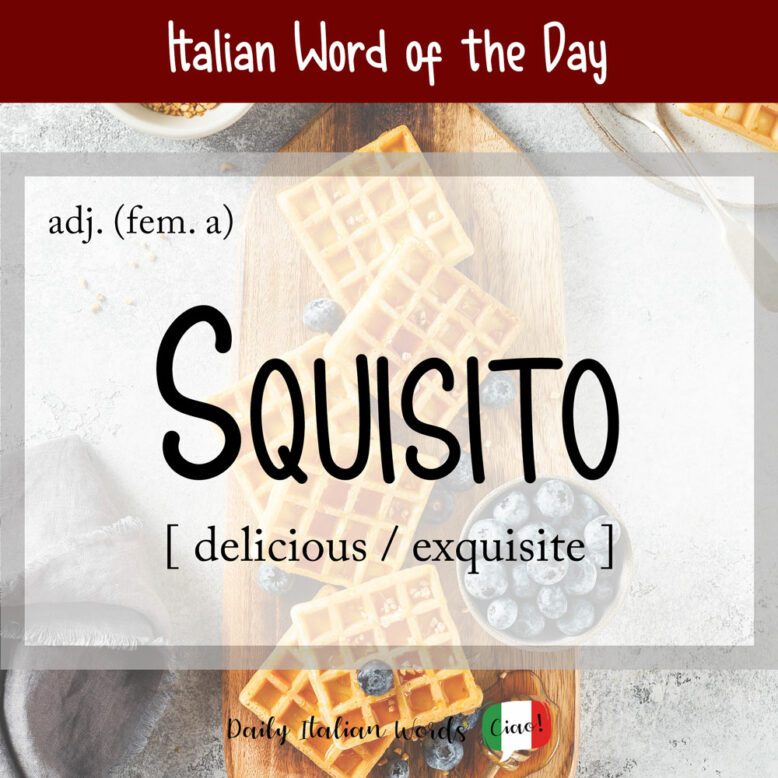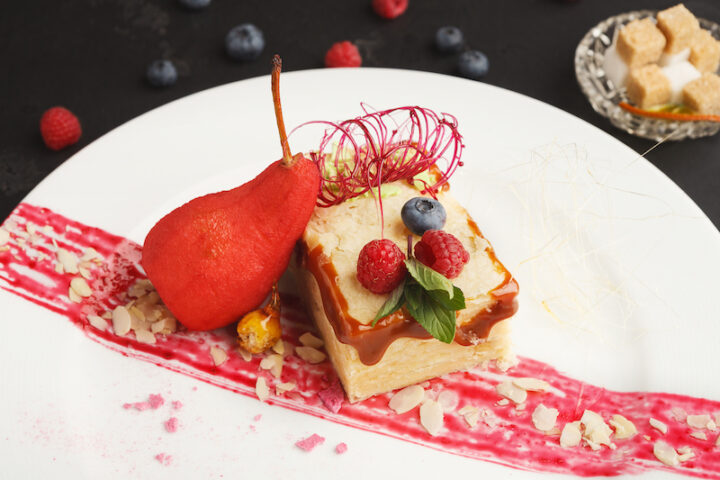The word squisito in Italian has two possible translations, depending on the subject in question.

When talking specifically about food, drink or any other sustenance, squisito best translates as delicious. In fact, it is a more accurate translation than the similar-sounding delizioso, an adjective whose primary translations are adorable or charming.
To discover all the different words for delicious food in Italian, check out our dedicated article!

In all other cases, the meaning is the same as the English equivalent exquisite. It can be used to describe people, objects, tastes, qualities and conduct. Some possible synonyms include raffinato (refined), delicato (delicate), elegante (elegant) or perfetto (perfect).
Non c’è niente di meglio che mangiare un piatto squisito in un luogo squisito.
There’s nothing like eating a delicious meal in an exquisite location.

Because it is an adjective, the ending changes according to the gender and number of the subject.
- squisito = masculine, singular
- squisita = feminine, singular
- squisiti = masculine, plural
- squisite = feminine, plural
If you desperately want to shower your host’s cooking with praise, it’s hard to think of a higher compliment than squisitissimo (extremely delicious), the absolute superlative of squisito.
Grazie mille per la cena. Era tutto squisitissimo!
Thank you very much for the dinner. Everything was absolutely delicious!
The adverb squisitamente has a double meaning too: it can refer for example to the excellent way in which one prepares a meal or somebody’s talent or manner:
- cucinare squisitamente = to cook exquisitely
- una persona squisitamente raffinata = an extremely refined person
Heather Broster is a graduate with honours in linguistics from the University of Western Ontario. She is an aspiring polyglot, proficient in English and Italian, as well as Japanese, Welsh, and French to varying degrees of fluency. Originally from Toronto, Heather has resided in various countries, notably Italy for a period of six years. Her primary focus lies in the fields of language acquisition, education, and bilingual instruction.


